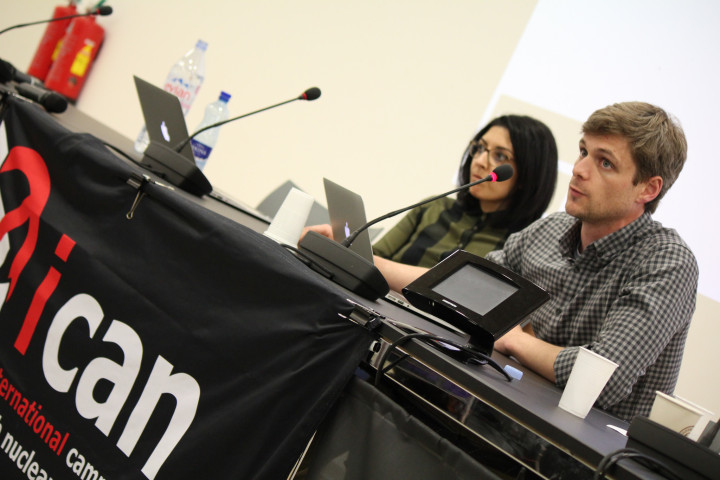Back in February, the UN General Assembly authorised the formation of a working group to study legal measures for nuclear disarmament. This week and next week the group convenes again before finishing its work in August. The International Campaign to Abolish Nuclear Weapons is working hard to ensure that the outcome of this work is a recommendation to start negotiations on a treaty to ban them.
At the beginning of the second session of the UN working group, several concrete proposals for starting negotiations of a new international treaty prohibiting nuclear weapons were put forward.
Nine states from Nuclear Weapons Free Zones – Argentina, Brazil, Costa Rica, Ecuador, Guatemala, Indonesia, Malaysia, Mexico, and Zambia – submitted a proposal to convene a negotiating conference in 2017 for a legally-binding instrument to prohibit nuclear weapons.
This is a very exciting development and shows that governments are feeling ready to start the process to ban nuclear weapons.
Another proposal, from the 127 endorsers of the Humanitarian Pledge, also calls for the urgent pursuit of a new treaty to prohibit and eliminate nuclear weapons.
This is the first time the Pledge group has come together to contribute substantively to a UN meeting to make recommendations on how to move the pledge forward.
The Community of Latin American and Caribbean States (CELAC) have also submitted a proposal calling for the start of “a multilateral diplomatic process for the negotiation of a legally binding instrument for the prohibition of nuclear weapons”.
Additional proposals calling for a treaty banning nuclear weapons have come from individual delegations such as Mexico and Nicaragua, while others nations have endorsed the call for a ban through their interventions from the floor.
Five Pacific island states – Fiji, Nauru, Palau, Samoa and Tuvalu – submitted a working paper that sets out possible elements to be included in a treaty banning nuclear weapons. It calls for negotiations to begin in the latter part of this year.
As more proposals are expected to be made during the second week of the UN working group, it’s clear that the majority of the world’s government want to negotiate a new treaty that would prohibit nuclear weapons.
The tireless work of ICAN campaigners around the world have generated significant results and negotiations of a ban on nuclear weapons might start soon. While a minority of governments still opposes a treaty banning nuclear weapons, the majority of the world is now ready to take action on the last weapons of mass destruction not yet comprehensively prohibited by a treaty.
The UN working group meets in Geneva between 2-13 May to discuss new legal measures, like a treaty banning nuclear weapons. You can follow the discussions and developments through Twitter, on Facebook and instagram.










